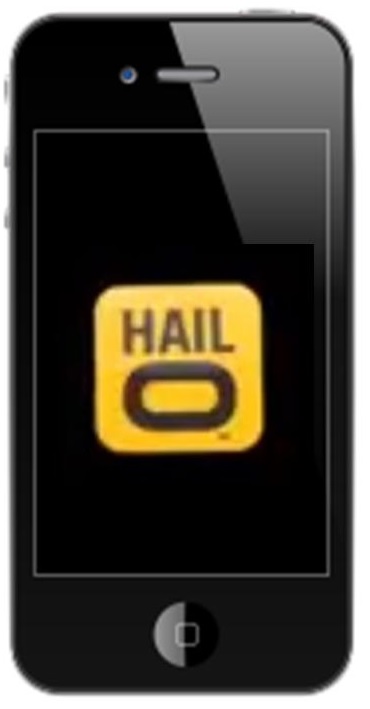The first traffic ticket has now been issued to an individual who was wearing Google Glass.
Someone has now become the first to be charged for distracted driving while wearing the augmented reality gadgets known as Google Glass.
This represents the first time that a California driver has been ticketed while distracted by wearable devices.
The driver received the ticket in San Diego County, and has now been cited for driving while distracted by wearable gadgets – in this case, Google Glass. The driver was Cecilia Abadie, who was 44 years old, at the time. She received the ticket after having been initially pulled over for speeding. That said, while the driver was pulled over, the officer noticed that she was wearing the device and upgraded the ticket for driving while distracted by a mobile computer.
This use of the gadgets is currently considered to be completely illegal, in California, while behind the wheel.
 According to the California Highway Patrol (CHP), it is not legal for a motorist to operate a motor vehicle while using a video monitor, TV, video screen, television receiver, or other means of displaying a television or video broadcast in a visual way, for a business or entertainment application, if it is visible to the driver, even if it is in the back seat, facing forward. This would imply that wearing these augmented reality gadgets could be defined as breaking the law as – depending on what is being displayed – it could be showing something of an entertainment or business purpose.
According to the California Highway Patrol (CHP), it is not legal for a motorist to operate a motor vehicle while using a video monitor, TV, video screen, television receiver, or other means of displaying a television or video broadcast in a visual way, for a business or entertainment application, if it is visible to the driver, even if it is in the back seat, facing forward. This would imply that wearing these augmented reality gadgets could be defined as breaking the law as – depending on what is being displayed – it could be showing something of an entertainment or business purpose.
At the same time, according to Google, its gadgets are designed to assist their wearers to better communicate and experience the real world, not to distract them from important tasks – such as driver – in which full attention is required. There are a growing number of people who are hoping that Abadie will take her case to court and fight it, so that there will be a precedent in favor of future wearers of the augmented reality glasses.
Abadie has explained that if she does fight the ticket in court, the outcome may depend on whether the judge is a technophile, who understands the gadgets, or if he or she is someone who simply thinks that they are devices that look odd.
Mobile commerce is growing
Mobile commerce has been showing strong growth around the world, but not everyone is making mobile payments. This is largely due to a lack of experience with mobile commerce platforms. While many consumers spend a significant amount of their time on a smartphone or tablet, relatively few of these people are comfortable with the concept of mobile commerce due to lack of exposure to the concept itself. Hailo, a venture capital-backed company that matches taxi drivers and passengers through the use of mobile applications, believes that there is a promising future ahead for mobile commerce.
Hailo helps expose consumers to new concepts
Hailo can find a person a taxi in many of the largest cities around the world. The application even allows passengers to pay cab fare using only their mobile device. Hailo believes that the service is quite beneficial to those that have somewhere to go in a hurry and it has certainly become useful to those that are too inebriated to drive safely. Hailo’s line of applications are not, of course, strictly designed to function as mobile commerce platforms, but they may be exposing more users to the concept of mobile commerce than many people realize.
 Application may provide a much needed introductory step to mobile commerce
Application may provide a much needed introductory step to mobile commerce
Hailo CEO Jay Bregman believes that mobile commerce will change the way people live their lives. Hailo’s impressive popularity is enough to suggest that this may be the case, as it has won praise from consumers for its mobile commerce capabilities. Bregman claims that the Hailo application can open up new doors in the future within the realm of mobile commerce, with the application itself serving as a low-impact first step for those that are unfamiliar with mobile payments in general.
Mobile commerce may change the way people pay for goods and services in the future
While many consumers have expressed interest in the idea of mobile payments, most do not participate in mobile commerce because they are uncertain of how to do so. The Hailo application can be considered as an introduction to mobile commerce, showing how consumers can pay for services that are quite valuable to them without actually using any form of physical currency.
 According to the California Highway Patrol (CHP), it is not legal for a motorist to operate a motor vehicle while using a video monitor, TV, video screen, television receiver, or other means of displaying a television or video broadcast in a visual way, for a business or entertainment application, if it is visible to the driver, even if it is in the back seat, facing forward. This would imply that wearing these augmented reality gadgets could be defined as breaking the law as – depending on what is being displayed – it could be showing something of an entertainment or business purpose.
According to the California Highway Patrol (CHP), it is not legal for a motorist to operate a motor vehicle while using a video monitor, TV, video screen, television receiver, or other means of displaying a television or video broadcast in a visual way, for a business or entertainment application, if it is visible to the driver, even if it is in the back seat, facing forward. This would imply that wearing these augmented reality gadgets could be defined as breaking the law as – depending on what is being displayed – it could be showing something of an entertainment or business purpose.
 Application may provide a much needed introductory step to mobile commerce
Application may provide a much needed introductory step to mobile commerce